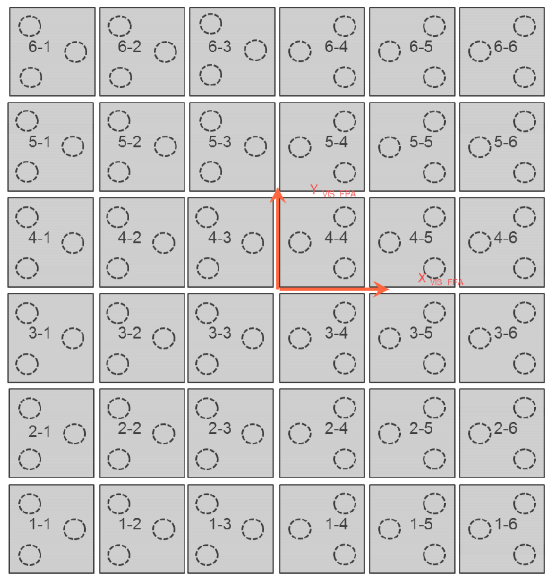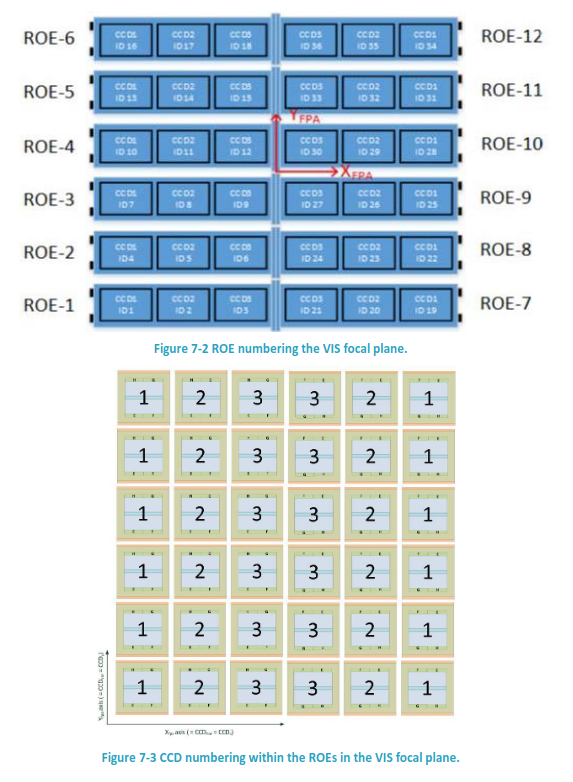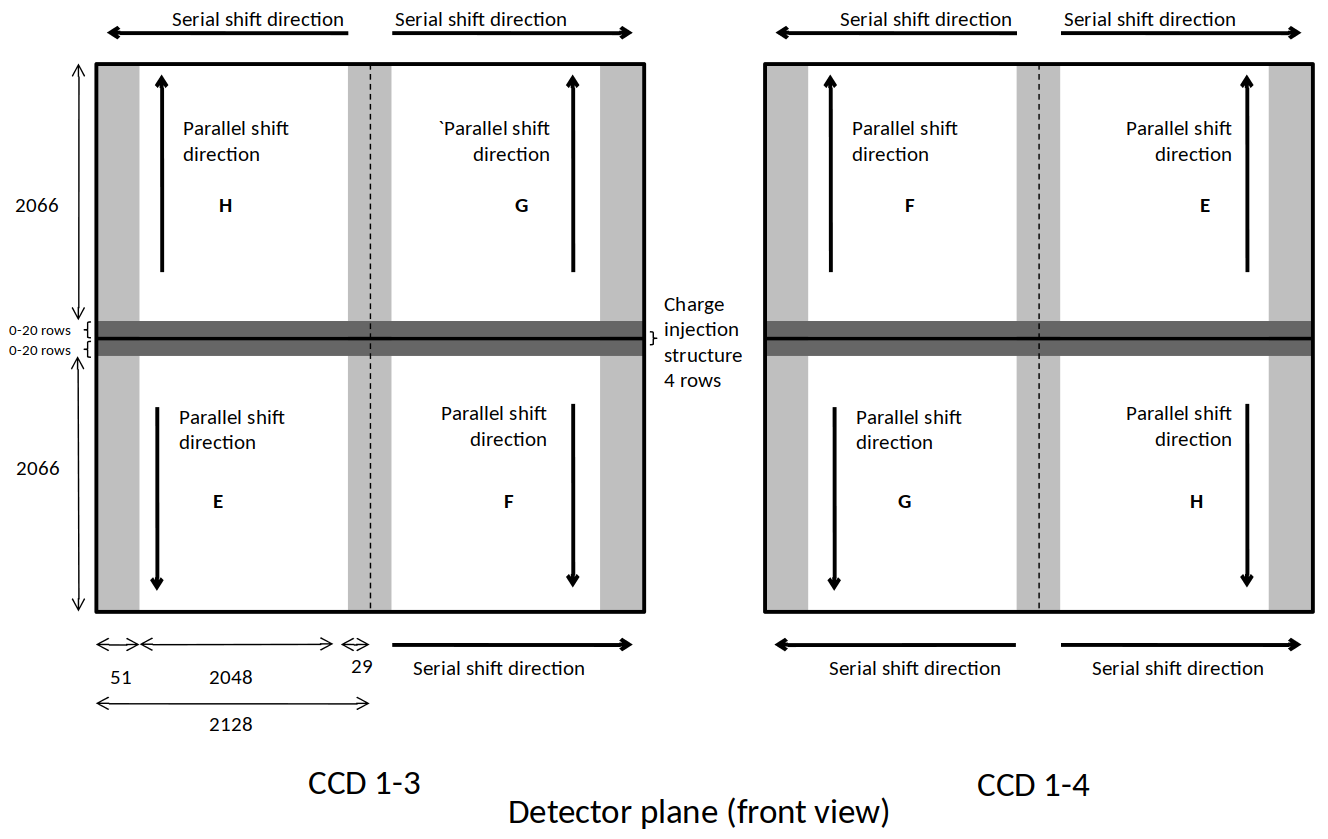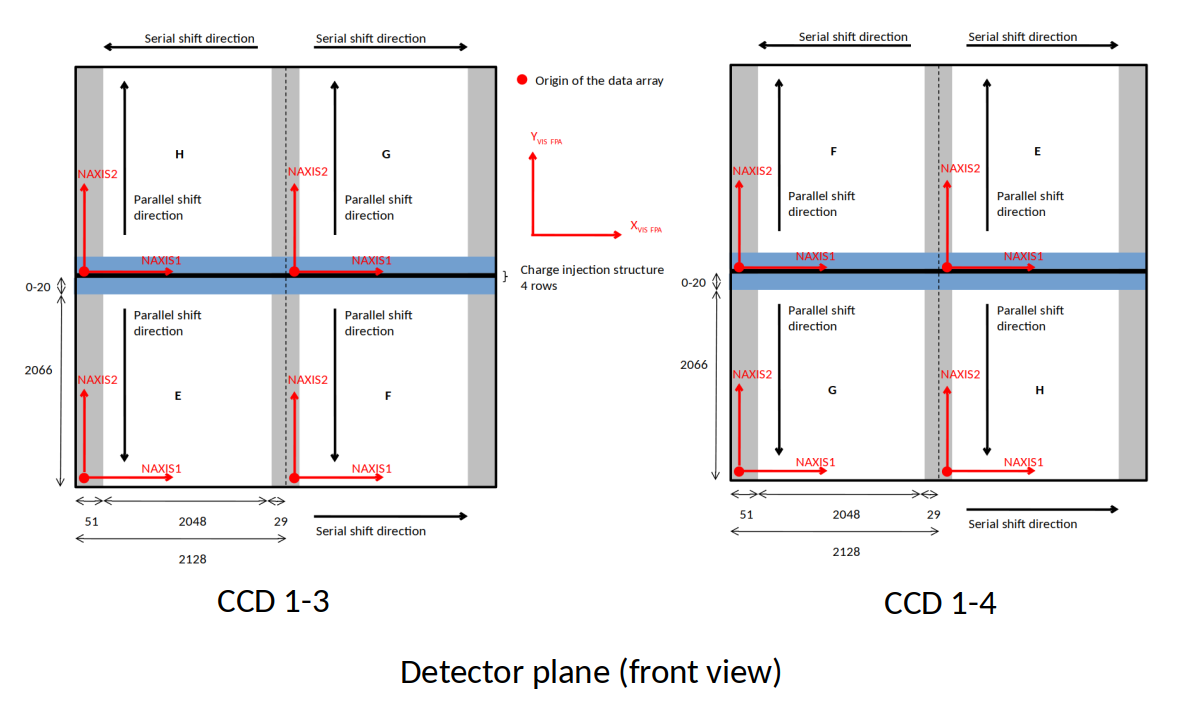Vis Raw Frame Product¶
$SetSchemaPath le1/euc-le1-VisRawFrame.xsd
Data product name¶
$PrintDataProductName
Data product custodian¶
$PrintDataProductCustodian
Name of the Schema file¶
$PrintSchemaFilename
DPDD version¶
1.1
Processing Element(s) creating/using the data product¶
Creators:
LE1_VIS
Consumers:
VIS_PF
Processing function using the data product¶
VIS processing function.
Data product elements¶
$PrintDataProductElements
Detailed description of the data product¶
The LE1-VIS component of the LE1 processing function provides calibration and scientific exposures and the associated metadata.
Calibration and scientific exposure is provided as one multi-extension FITS (MEF) file, with one extension per quadrant, that is 144 extensions altogether.
The CCD numbering and location on the detector plane is showed on Fig. 6 and Fig. 7 below. The dotted circles are attachements of the CDD packages.

Fig. 6 : CCD numbering and location at detector plane level (Front view) From VIS FPA ICD (EUCL-SAP-ICD-6-001) issue 2.5 2014/20/10¶

Fig. 7 : CCD numbering and location at detector plane level (Front view) From VIS FPA ICD (EUCL-SAP-ICD-6-001) issue 5.1 2020/10/23¶
One can notice that CCDs on the right side of the focal plane are rotated by 180° with respect to those on the left. This means that CCD quadrants are not positioned the same way across the FPA, as showed on the Fig. 8 below for CCD 1-3 and 1-4.

Fig. 8 : Quadrant position on the FPA¶
Fig. 9 below shows one CCD with the position of the 51 pre-scan and 20 over-scan pixels with respect to the imaging area. Each quadrant is marked with either E, F, G or H, according to the naming used by the manufacturer.

Fig. 9 : Quadrant organisation in a CCD¶
Note: the charge injection structure which is four rows in the middle of the CCD: this will create a gap in the images.
Data encoding¶
All pixel data are in units of ADU, 16-bit unsigned integer.
The origin of each data array is located at the bottom left of the FPA with respect to Fig. 6. The following Fig. 10 shows the origin of the data array and NAXIS1, NAXIS2 axes for each quadrant in a CCD.

Fig. 10 : FITS data array organisation for each quadrant in a CCD¶
Header content¶
Primary header
$PrintPrimaryHeader fit/euc-test-le1-vis.xml le1.visRawImage
Extension headers
Each extension shall contain the CCD and quadrant identification. CCD will be identified with the numbering shown above (‘1-1’, ‘1-2’,…, ‘6-6’) and the quadrant by the letters ‘E’, ‘F’, ‘G’ or ‘H’ according to Fig. 9.
$PrintExtensionHeader fit/euc-test-le1-vis.xml le1.visRawImage SCI.n
On the next LE1 PF release, these two keywords value will be modified or added:
Predicted / instantaneous spacecraft velocities in TBD referential:
The spacecraft instantaneous velocity will be used to correct the velocity aberration (astrometric effect which produces an apparent displacement of celestial objects about their true positions, dependent on the velocity of the observer). In case the instantaneous spacecraft velocities were not available in time to be included in the LE1 data product we would use a predicted velocity to apply a first approximative correction that will be refined afterwards with the instantaneous value.
Temperatur of the CCD check with VIS IDT that this data is available as such (which temperature sensors are there, which data will be available on ground?).
Temperature of the telescope.
File checksum.